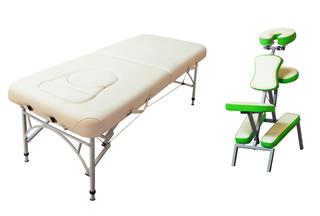
People have a wonderful ability to be in control of their emotions. They laugh, when they are happy, cry in pain (physical or emotional), and get angry when upset. However, there are some who are unable to do so and have involuntary emotional displays of moods, this is known as emotional lability.
Emotional Lability is also known as labile affect, pseudobulbar affect, pathological laughing and crying, or involuntary emotional expression disorder (IEED).
We as humans are gifted with many emotions and as we grow older we develop the ability to express them in a way suitable. Nearly everyone is prone to fit of giggles, or sudden irritability, or spells of crying and sadness. These things often work as a vent to our repressed emotions – which often is normal. At times, however, things get out of control and understanding, as for some, these occurrences are frequent and overly exaggerated, these can also be termed as emotional lability.
An emotionally labile person may laugh at a funeral or over a serious injury or might begin to sob at a joke or get annoyed and angry for no apparent reason. These emotions are intense and yet involuntary and a little tricky to understand.
What is Emotional Lability?
Emotional lability is a disorder that shows involuntary emotional displays of mood, which are overly rapid and exaggerated. The person suffering from this condition has bouts of uncontrollable laughter, jolts of anger, and spells of crying. These emotions are unrelated to the person’s emotional state.
Causes for Emotional Lability
People who suffer from the certain medical conditions, head trauma, or stroke are susceptible to it. However, it can arise due to two main reasons: physical damage to brain or emotional disorder. In the case of physical damage, if the brain and neurological system is damaged due to aging or trauma, the person is prone to labilty. If a person has faced repetitive losses and experienced tragic events, like loss of family, relationships, jobs, etc. it can also trigger lability.
Possible Medical Causes for Emotional Lability
❖ Acquired brain injury
❖ Attention deficit hyperactivity disorder- ADHD
❖ Alzheimer’s disease
❖ Amyotrophic lateral sclerosis- ALS
❖ Brain degeneration
❖ Cerebral tumor
❖ Chronic diseases
❖ Creutzfeldt-Jakob disease
❖ Cushing Syndrome
❖ Dementia
❖ Depression
❖ Head trauma
❖ HIV
❖ Huntington disease
❖ Lead poisoning
❖ Post encephalitis
❖ Post-partum depression
❖ Pseudobulbar palsy
❖ Post-partum psychosis
❖ Mental illness
❖ Motor neuron diseases
❖ Multi-infarct dementia
❖ Multiple sclerosis
❖ Neurosyphilis
❖ Normal pressure hydrocephalus
❖ Stroke
❖ Traumatic brain injury
❖ Usher’s Syndrome
Triggers Causing for Emotional Lability
An important point to remember here is that the person suffering from this problem will not be unstable all the time. In fact, certain situations can trigger these outbursts. Some triggers include:
❖ Fatigue
❖ Overstimulation (crowd, high expectations, noise)
❖ Certain environment
❖ Anxiety
❖ Insulin imbalance
❖ Overwhelming circumstances
❖ Strong emotions by others (stories, movies, etc.)
❖ Sudden change
❖ Hormonal/ Thyroid imbalance
❖ Menstruation/ premenstrual syndrome/ menopause
❖ Pressure
Treatment for Emotional Lability
Now that you know the cause of these emotional reactions and what points may trigger them, it’s time for the next step and that’s the treatment part. Treatments usually focus on teaching the person how to manage these sudden outbursts through cognitive behavioral therapy, counseling, support groups, yoga, breathing exercises, relaxation techniques, stretching, etc. Following are some things that you could consider doing.
Visit the Doctor
Before you begin with any treatment it is advisable to visit a doctor. They will be able to better determine the root cause of the problem and prescribe effective treatment and medication.
Educate
People around the patient can be key triggers for the outburst. Hence, educate the patient as well as the people around him/her about the condition. This will also help the patient be free of any tension and stress. It will also spare them of any embarrassment further thus reducing the pressure on them.
Take a Break
Taking short breaks and going for a walk, or sitting down and relaxing with a cup of tea will reduce the pressure and help in controlling the anxiety.
Ignore
Ignoring the behavior, also takes some pressure off the person, which further helps the person relax. Consider the behavior – whether it is laughter, anger, crying as insignificant and continue the conversation ahead until the bout passes off.
Avoid Stressors
Avoid certain topics that can stress the patient, try and change the topic and distract the person. Avoid heavily crowded places and loud noises. Plan activities that don’t fuel the person’s emotional vulnerability.
Counseling and Support
Enrolling the patient in psychiatric counseling and support groups will help the person deal with their deep-seated issues and fix the root cause of their problem. The therapist can give the patient adequate tools to help him/her cope with difficult situations. In certain cases, medicines can also be prescribed.
Early detection along with the right treatment can help from further damages to both the person and his relationships. Helping the patient come to terms with their condition, and mainly equipping not just the patient but also the people closest to him/her will help support the professional treatments.













